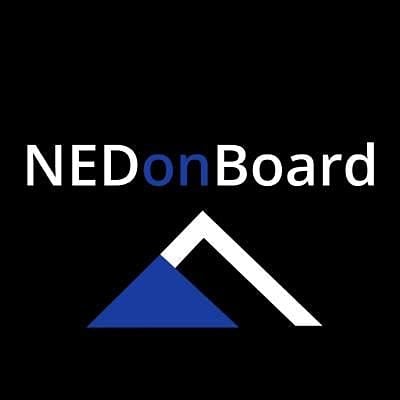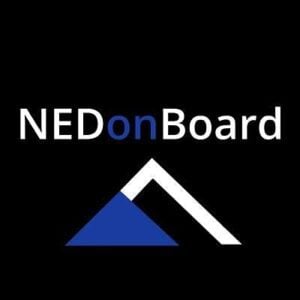Age diversity on boards – An expert interview with Raphaëlle Vallet
As evidenced through our interview with Raphaëlle Vallet, boards can benefit from diversity, including the insights of the younger generation and those still green to being on a board. For those of you wondering if you are ready for board life, why not read on and follow in Raphaëlle’s footsteps? Raphaëlle graduated with a BA in Geography at Oxford in September 2014. At the time of the interview, she was trustee at TimeBank; she served on the board of this UK volunteering charity from July 2015 to September 2019.
Congratulations on successfully landing a trustee position after your graduation from university. What steps did you take to be appointed?
During and after my studies I undertook work experience where I developed some of the most ‘basic’ trustee skills; financial literacy, budget management, strategy, stakeholder engagement – not to mention volunteering experience. This meant I had a solid ground of experience to back my application – at least for someone my age.
The application process in itself was very straightforward: I sent a CV, cover letter, references from colleagues, then attended an interview. In order to prepare, I started by researching TimeBank in depth. I looked at their outward-facing image; their social media communication strategy, the way they showcase their successes. I also read their annual reports and financial statements to understand their internal strategy. This gave me a good idea of TimeBank’s short- and medium-term goals, as well as the challenges that they face. I familiarised myself with trustee responsibilities by browsing reports published by the Charity Commission.
I must stress that a large part of my success in securing the role was thanks to TimeBank trustees’ open mindedness with regards to bringing a young trustee on the board. It’s a difficult decision for any charity to hire someone with no prior experience of running an organisation. I am very grateful that the board decided to believe in me and trusted that I would bring value to the board.
What have been the key things you have learnt from your board involvement?
TimeBank put together a half day induction session with the Chief Exec, the Finance Manager, their external auditor and the Communications Manager. There I gained an excellent understanding of TimeBank’s history, finances, and what was expected of trustees – it complemented the preliminary reading I had done very well. During my first board meeting we talked about key players in our sector and their differences compared to TimeBank. This improved my understanding of the charity landscape and helped me develop ideas with regards to how we could position ourselves in that landscape.
In turn, this helped me find ways of tailoring my skills to running a charity. For example, I adapted my financial analysis skills, which I gained while working in investment banking, to understanding how a charity runs its finances. In my current role in Government I lead on policy development, stakeholder engagement and providing advice for Ministers, so I used my understanding of Government processes and of politics to understand the implications of the recent election for TimeBank.
From a more personal perspective, I’ve learnt to trust my strategic instinct and to work with next to no steers from a superior, which has helped me become a lot more confident, both as a trustee and in my day job. Talking about my experience as a trustee with colleagues has enhanced my professional reputation and increased my visibility in the office. It is very rare for a young person to become directly involved in running an organisation the size of TimeBank, and to report directly to the Chief Executive. It is an incredible opportunity altogether.
What benefits do you think you add to a board as a relatively young board member?
This is a question I asked myself a lot before applying and which I still constantly keep in my mind. Not only do I want to ensure I add value to the organisation – but I want to ensure I add a different kind a value compared to other trustees. This is what a diverse board should be all about – in particular in a sector whose beneficiaries themselves tend to come from very diverse backgrounds.
I think young people can bring a completely fresh perspective to any organisation. Being relatively inexperienced gives a fantastic excuse to ask a lot of questions. I took (and still take) that opportunity to constantly ask the ‘why-nots’ and ‘what-ifs’ that others might not have thought about. I think it’s very healthy for any organisation to regularly question its own assumptions and this ‘questioning’ role on the board can be more easily taken up by a young person than someone with decades of experience in the charity sector who might take things for granted. I’ve also made several suggestions on ways we could leverage graduate scheme placements in the charity sector and use social media to its full potential to recruit volunteers, which I think ultimately came from my recent experience of looking for jobs after graduating.
Overall, diversity on a board – and this isn’t just about being younger – can help a board avoid group thinking and cultural disconnect from its beneficiaries. However I must stress that my relative inexperience would be a weakness if it wasn’t for the years of experience that other trustees bring to the board.
Related post: 6 ways NEDs can address Culture, Diversity & Inclusion right now in their workforce and in the boardroom
Anything else you would like to add?
For any young person considering applying for a trustee position, and any charity considering recruiting a young trustee, I recommend reading the report from the Charity Commission entitled ‘A Breath of Fresh Air: young people as charity trustees’.
Related post: NEDonBoard calls for boards to appoint younger non-executive directors to refresh their composition
Want to know more?
- If you are looking to transition to the board as a non-executive director, we invite you to register your attendance at our next complimentary webinar session: “How to secure your first NED role.”
- If you are committed to start your NED journey, please visit the NED Accelerator Programme by NEDonBoard. We applied years of accumulated knowledge and worked with experienced NEDs and chairs to deliver practical and actionable content to professionals looking to successfully and confidently transition to non-exec roles.




